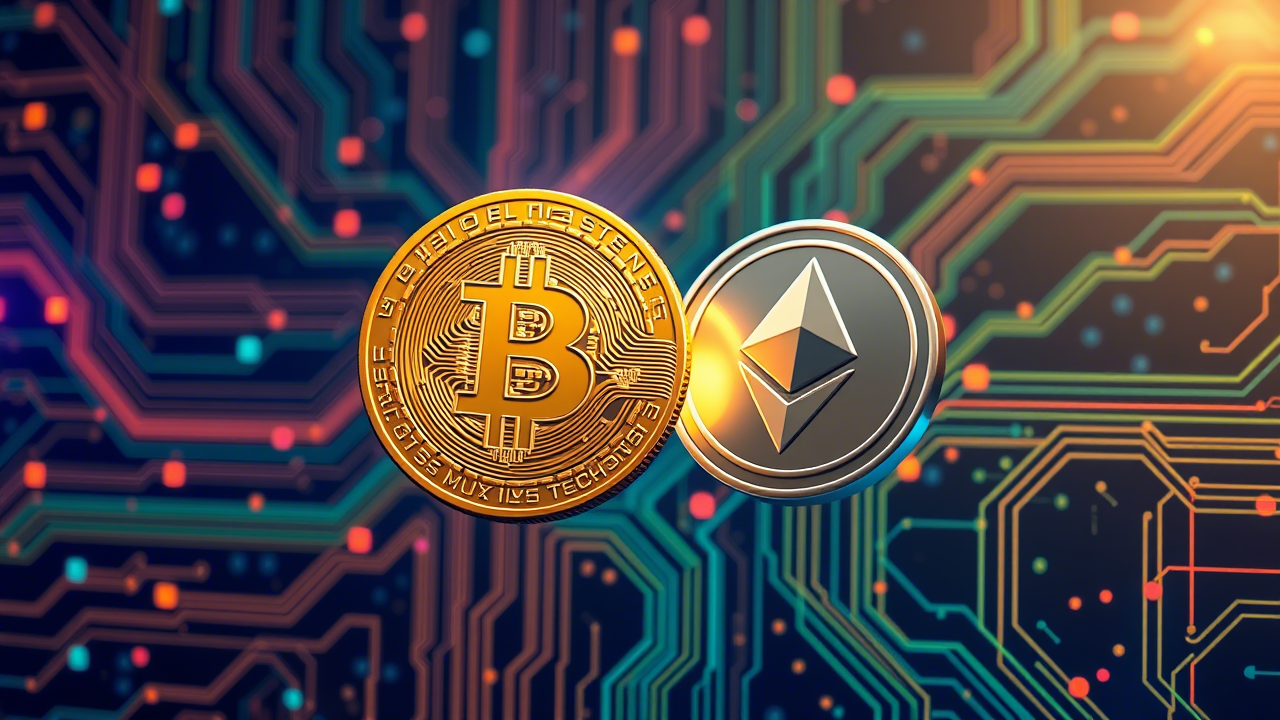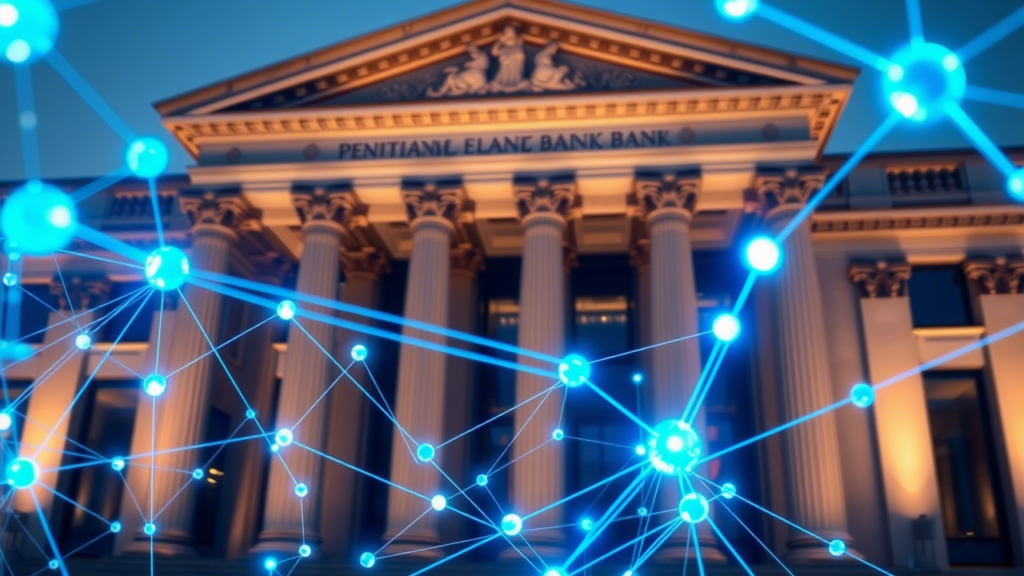So your favorite YouTuber just bought a digital sneaker for more than your entire gaming setup—and they paid in crypto. Or maybe your friend won’t stop talking about “staking ETH” like it’s some kind of fantasy game move. Whatever the case, you’ve probably heard about Bitcoin and Ethereum and thought… what is this stuff?
Welcome to Crypto 101 for Teens, your no-stress, hype-free guide to figuring out what crypto is, how it works, and how you can start learning about it without needing a degree in rocket science (or finance). This article breaks everything down in plain language—no confusing jargon, no boring lectures—just the basics, explained the way your group chat would.
Whether you’re curious about digital money, wondering what the blockchain actually does, or just want to know if NFTs are still a thing, you’re in the right place. Let’s decode this digital world, one byte at a time.
What is Cryptocurrency Anyway?
Alright, let’s break it down. Cryptocurrency (or “crypto” if you’re cool like that) is digital money. But unlike the coins in your wallet or the dollars in your bank account, this money lives completely online—and it’s not controlled by any government, bank, or sleepy finance dude in a suit.
At the heart of crypto is something called a decentralized network. That just means there’s no single person or company in charge. Instead, it runs on a system of computers all around the world that work together to keep track of who owns what. Think of it like a massive Google Doc, shared with everyone, that updates in real time and can’t be edited by just one person. That’s how the blockchain works.
Now, when people talk about cryptocurrency, two names come up again and again: Bitcoin and Ethereum. These are the OGs.
- Bitcoin was the first—created to be a kind of digital gold, something you could buy, hold, and trade without needing a middleman.
- Ethereum came next and brought more than just digital money to the table—it added code, which means people can build games, apps, and even digital art markets using it.
So yeah, cryptocurrency is more than just pretend internet coins—it’s digital ownership, powered by tech, and it’s changing how people think about money and creativity online.
Why Do People Care About Bitcoin and Ethereum?
Okay, so why is everyone so hyped about these digital coins? Why are people buying snacks with crypto or selling pixelated apes for the price of a used car? Let’s get into it.
First up: value. Bitcoin and Ethereum aren’t just random internet points—they’re valuable because they do things traditional money can’t.
Take Bitcoin. There’s only a limited amount—21 million coins, ever. That’s it. No printing more when someone feels like it. That scarcity makes it kind of like digital gold. People see it as a way to save and protect money, especially in countries where the local currency can lose value fast. Some even treat it like an investment, hoping its price will rise over time.
Ethereum, on the other hand, is like digital money that also knows how to code. It’s not just about storing value—it powers apps, games, and even entire virtual worlds. People use Ethereum to make digital art (hello NFTs), play games where you earn tokens, or build social apps where users—not big companies—own the platform.
Here’s where it gets fun:
- Ever played a game where you earned points or gear, but couldn’t take it anywhere else? With crypto games, those items can actually belong to you—you could sell them, trade them, or bring them to other games that support the same system.
- Artists can sell their work directly online as non-fungible tokens (NFTs), and thanks to Ethereum, they get paid instantly and even earn money if that art gets resold later.
- Imagine a social app like TikTok, but every time someone likes your video, you earn a token that actually has real-world value.
So yeah—people care because Bitcoin and Ethereum open up a whole new way to think about money, ownership, and how we use the internet. It’s not just about being digital—it’s about being in control.
How Does Crypto Even Work?
Alright, so now you’re thinking: “Cool, but how does this digital money actually work? Like… where does it live? How do people keep track of it? And how do I not accidentally lose it in the void of the internet?”
Let’s keep it simple.
Crypto runs on something called the blockchain. Picture it like a giant digital notebook that’s shared with millions of people. Every time someone sends or receives crypto, a new entry gets written in this notebook. But here’s the catch—you can’t erase anything, and everyone can see it. That’s what makes it secure and fair. No cheating. No fake coins. No sneaky business behind closed doors.
Now, to actually use crypto like Bitcoin or Ethereum, you need something called a wallet. But don’t think leather and zippers. A crypto wallet is a digital app that stores your crypto and lets you send or receive it.
Here’s the fun part:
Your wallet has two keys—kind of like a high school locker combo.
- The public key is like your locker number. You can give it to your friends so they can drop stuff off.
- The private key is your actual locker key. You never share it with anyone, or someone might swipe your stuff.
So when someone sends you crypto, it’s like they’re putting digital coins into your locker. Only you, with your private key, can open it and move those coins.
Behind the scenes, math and computers are doing all the heavy lifting to keep things secure and updated. You don’t need to understand every detail (unless you’re into that), but knowing the basics is enough to start exploring this new digital world safely.
In short: Blockchain = super-smart notebook. Wallet = your personal crypto locker. Private key = keep it secret, keep it safe.
What You Need to Get Started
So you’re ready to dip your toes into the crypto pool. Nice. Before you start flexing your digital wallet, here’s what you actually need to get going—with zero stress and zero drama.
First up: How Old Do You Need to Be?
Most crypto apps and exchanges require users to be 18 or older. Yeah, kind of a buzzkill. But don’t worry—if you’re underage, you can still learn and explore with help from a parent or guardian. Some apps even have teen-friendly setups where you can create an account under adult supervision. So, maybe it’s time for a quick convo with your most tech-savvy family member.
Next: Let’s Talk Wallets
Remember—your crypto wallet is where you store your Bitcoin, Ethereum, and any other tokens you might collect. There are different kinds of wallets, depending on how you want to access your crypto:
Related: Crypto Titans Bunker Down Now: Vitalik’s Austerity Vow, Binance $1B Bitcoin Shield
- Mobile wallets – Apps you download on your phone. Super convenient, great for beginners, and usually easy to use. Think of these like your everyday wallet you carry in your pocket.
- Web wallets – These live in your browser, often tied to crypto apps or games. Handy, but make sure they’re from legit sources.
- Hardware wallets – Physical gadgets that look like USB sticks. They’re extra secure but more advanced (think: digital vault for when you’re rich in crypto).
Most teens getting started will be just fine with a simple mobile wallet—just double-check that it’s from a trusted company and has good reviews.
And Where Do You Actually Get Crypto?
You don’t need to buy a full Bitcoin (they’re expensive, trust us). You can buy tiny pieces called satoshis (for Bitcoin) or gwei (for Ethereum). Start small—seriously.
Some safe ways to get your hands on a little crypto:
- Crypto exchanges like Coinbase or Kraken (with adult help).
- Crypto apps that allow supervised teen accounts.
- Learning platforms like Coinbase Earn that reward you with a bit of crypto just for watching short videos and answering quizzes (educational and rewarding? Yes, please).
So TL;DR: Ask an adult to help if you’re under 18, pick a beginner-friendly wallet, and stick with trusted apps or exchanges. No shady Telegram groups. No sketchy links. Just smart, safe steps into the world of digital money.
Staying Safe in the Crypto World
Alright, this part’s important—because while crypto can be exciting and full of cool opportunities, it can also attract scammers faster than a free pizza announcement in the school cafeteria. Staying safe is key if you’re exploring Bitcoin, Ethereum, or any other digital asset.
Let’s break down the basics of not getting wrecked:
Beware of Scams and Fake Apps
If someone DMs you out of nowhere saying they’ll double your Bitcoin “just because,” it’s 100% a scam. No one is giving away free money—especially not on sketchy websites with pixelated logos and 17 pop-ups.
Always download wallets and crypto apps from official websites or trusted app stores. And triple-check the name—some fake apps look almost identical to the real ones. (If it feels shady, it probably is.)
Keep Your Private Key Private (Like, Super Private)
Remember that locker key metaphor from earlier? Your private key is the only way to unlock your wallet. If you give it away, someone else can take everything.
Here’s the golden rule: never share your private key or recovery phrase with anyone. Not your best friend, not a Discord bot, not even someone pretending to be “tech support.” Real crypto platforms will never ask for it.
Always Do Your Homework First
Found a new crypto game that promises you’ll “get rich overnight”? Pause. Breathe. Google it.
In the crypto world, you have to be curious and cautious. That means reading reviews, checking Reddit, watching YouTube explainers from people who aren’t just hyping stuff. Ask questions like:
- Is this legit?
- Who made it?
- What do others say about it?
Basically, don’t click, tap, or invest until you actually understand what’s going on. Bitcoin and Ethereum are powerful tools, but only if you know how to use them wisely.
In the end, think of crypto like a virtual theme park—it’s full of cool rides, but you still have to follow the safety signs. Keep your keys safe, stick with trusted apps, and never be afraid to ask questions before jumping in.
Cool Stuff You Can Explore with Crypto
Alright, so you’ve learned the basics, picked a wallet, and even scored a tiny bit of Bitcoin or Ethereum. Now what? Well, the crypto world isn’t just about watching charts and HODLing. There’s a whole universe of fun, creative stuff out there—and yes, teens are already getting involved.
NFTs and Digital Art
Let’s talk NFTs. These are like digital collectibles—art, music, memes, even tweets—that live on the blockchain. What makes them special? When you own an NFT, you can prove it. It’s like having the real version of a digital thing.
Artists and creators are using Ethereum to mint (create) NFTs and sell their work directly to fans, no middlemen needed. And collectors? They’re building digital galleries or rocking rare profile pics that no one else owns. It’s art, but with internet swagger.
Crypto Gaming and Play-to-Earn
Imagine a video game where your gear actually belongs to you, not just your account. That’s crypto gaming. You can earn tokens while playing, trade them with others, or even sell rare in-game items for real money.
These games often run on blockchains like Ethereum or other networks that connect to it. Some let you breed virtual pets, build empires, or battle using NFT cards. It’s like leveling up—but your XP can turn into actual value.
Tipping and Donations in Online Communities
Crypto’s also changing how we say “thanks” online. On some platforms, you can tip creators or favorite posts with a little Bitcoin or Ethereum instead of just leaving a like. It’s kind of like giving someone a gold coin for a fire meme.
And because crypto is global, it’s easier than ever to donate to causes you care about—even if they’re on the other side of the world. All it takes is a wallet address.
DAOs: Online Clubs With Voting Power
This one’s for the future leaders. DAO stands for Decentralized Autonomous Organization, but think of it as a group chat that runs like a mini democracy. People use crypto tokens to vote on decisions—like what to fund or which meme should be the next logo.
It sounds wild, but teens have already joined DAOs to support projects they love, pitch ideas, and even get paid to contribute.
Related: Crypto Industry Now Mobilizes Against Perceived Quantum Threat
So yeah, Bitcoin and Ethereum aren’t just about investing—they’re about creating, playing, tipping, and even organizing in brand-new ways. It’s not just money—it’s a new kind of internet playground.
Terms You’ll Hear a Lot (and What They Mean)
If you’re starting to dive into the crypto world, you’re going to hear a ton of terms that might sound like they came from a sci-fi movie. Don’t stress, though. We’ve got a mini glossary to make sure you don’t get lost in the lingo. Here are some of the most common terms you’ll bump into:
Blockchain
Think of it as a digital notebook, but with some serious tech. Every time someone sends or receives crypto, it gets recorded on the blockchain. Once it’s written down, it cannot be erased or changed—so it’s super secure. It’s the backbone of everything crypto, keeping track of who owns what without needing a middleman like a bank.
Wallet
No, not the leather kind. A crypto wallet is an app or device that stores your digital coins. It’s like your online wallet, except instead of holding cash or cards, it holds your Bitcoin, Ethereum, or other tokens. You’ll need this to send, receive, or store your crypto.
Gas Fees
Imagine you’re driving your car to the store, but every time you make a turn, you have to pay for gas. In the crypto world, gas fees are the small amounts of cryptocurrency you pay to complete transactions on networks like Ethereum. These fees go to the computers that process your transaction, kind of like paying a toll when you’re driving through a highway.
HODL
This is a fun one. “HODL” originally came from a typo of the word “hold,” but it’s now a term used by crypto enthusiasts to describe holding onto your crypto for the long haul, even if the price goes up or down. It’s kind of like saying, “I’m not selling, no matter what.” So, if you hear someone say they’re “HODLing,” they’re in it for the long game.
Token
A token is a type of cryptocurrency that represents something else. Think of it like a coupon, but for digital goods or services. While Bitcoin and Ethereum are both coins, tokens can represent anything from virtual items in a game to shares in a company. They’re built on top of another blockchain (like Ethereum) but can be used in all sorts of ways.
FOMO
Fear Of Missing Out. You’ve probably felt this when your friends are all talking about the latest game or trend, and you’re not in on it. In crypto, FOMO happens when people see the price of a coin going up fast and think they have to buy before they miss the train. Be careful, though—sometimes the price can drop just as fast!
Pump and Dump
A “pump” is when the price of a coin suddenly shoots up (often because of hype or rumors), and a “dump” is when it crashes just as quickly. This is usually done by people trying to manipulate the price, so always research before jumping in.
Altcoins
These are basically every other cryptocurrency that isn’t Bitcoin or Ethereum. There are thousands of them—some are useful, others are just experiments. If you ever hear someone say they’re into “altcoins,” they’re talking about the vast world of crypto that goes beyond the big two.
Now you’re armed with a few key terms to sound like a crypto pro. Keep these in your back pocket, and you’ll be able to chat with anyone about the digital money world without feeling like a total newbie. Plus, knowing these terms will help you dodge those confusing moments when you’re like, “Wait, what’s a gas fee again?”
Final Tips Before You Jump In
You’re almost ready to jump into the crypto world—but before you dive in headfirst, here are a few final tips to make sure you’re starting off on the right foot.
Start Slow, Learn as You Go
Crypto can be exciting, but it’s not a race. There’s a ton to learn, and it’s totally fine to take your time. Start small, maybe with a few dollars, and get the hang of things as you go. Don’t feel like you need to know everything right away. The more you learn, the more confident you’ll feel. Think of it like playing a new video game—at first, it might feel like you’re dying every few minutes, but with practice, you’ll be owning it in no time.
Talk to a Trusted Adult Before Spending Any Money
It’s always smart to talk to a parent or guardian before spending real money on crypto. Even if you’re super excited to try it out, having an extra pair of eyes can help you avoid making any impulsive decisions. They can guide you, help you set boundaries, and even join you in learning together. Plus, they might have some good advice to keep you safe in this new digital world.
Follow Creators or Educators Who Explain Crypto in Teen-Friendly Ways
The best way to stay up-to-date and learn is by following people who explain crypto in a way that makes sense to you. There are tons of content creators, YouTubers, and social media influencers who break down complex crypto topics into bite-sized, easy-to-understand videos or posts. Some even use fun animations, memes, and relatable examples to explain everything from Bitcoin to NFTs. The more you follow, the more you’ll stay in the loop.
So there you have it—your beginner’s guide to the world of crypto. Remember, Bitcoin, Ethereum, and other cryptocurrencies are still evolving, and you’re part of a generation that’s helping shape their future. Just like with anything new, take it slow, ask questions, and enjoy the ride. Crypto’s not just about making money—it’s about exploring new ways to interact with the world online. Now, get out there and start your journey!
What’s Next on Your Crypto Journey?
You’ve made it through the basics, and now you’ve got a solid understanding of how Bitcoin, Ethereum, and the crypto world work. But this is just the beginning—there’s so much more to explore, and every day, new opportunities pop up in this exciting space.
So, keep your curiosity alive. The crypto world is constantly changing and evolving, and you never know when something totally new and cool will pop up. Maybe you’ll be the one explaining NFTs to your friends, or finding the next big crypto trend before it blows up. The best part? You’re now part of a global conversation about the future of money, art, gaming, and more.
Next time someone mentions Ethereum, you’ll know what’s up. And who knows? Maybe you’ll be the one sparking the next great crypto chat.
Stay curious, stay safe, and most importantly—have fun exploring the world of digital currency!












